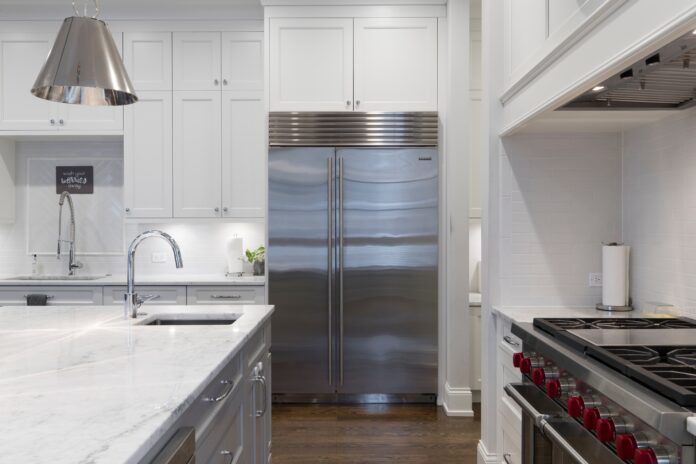Use refrigerators and freezers wisely.
Set your refrigerator at 3 C. Check that the seals on your refrigerator and freezer doors are still intact.
Don’t open the fridge or freezer doors until absolutely necessary.
Place your refrigerator and freezer in a cool location, away from sun-facing walls and windows, and as far away from the stove as feasible.
Defrost your chest freezer and upright freezer at least twice a year.
Use only 90 percent of the capacity of your fridge or freezer.
Use your stoves and ovens wisely.
Close the oven door until the meal is done cooking.
Pots should be matched to the size of the stove plate.
Use your stove for small tasks such as boiling water for tea and coffee.
Place frozen food in the refrigerator to defrost; do not defrost food in the microwave.
Cook tiny to larger portions of food in the microwave.
For long-cooking foods like stews and casseroles, use a pressure cooker or slow cooker.
Use dishwashers wisely.
Wait until there is a full load of dishes and cutlery before washing.
Soaking or prewashing is only advised in cases of burnt or dried-out food.
Scrape off bones and large chunks of food from crockery, pots, and pans rather than rising it off.
Understand how your dishwasher works and ensure it is set to the environmental mode.
Make good use of washing machines and tumble dryers.
Wait until there is a full load of laundry before washing.
Set your washing machine to the appropriate load size; there is no need to use the machine’s highest and longest settings if you are washing a little load.
Only soiled garments should be washed. Heavy items, such as jeans, can be worn a few times before being washed.
Cold settings are OK. If your garments are not significantly dirty, avoid using the hot water setting.
Learn how your washing machine works and ensure it is set to the eco-mode.
Use the washing line instead of the tumble dryer on sunny days.
Use air conditioners wisely.
In the summer, keep it at a comfortable 23 degrees Celsius; once turned on, keep all windows and doors closed.
If you don’t have an air conditioner, you should:
In the summer, fire retardant ceiling insulation can keep a home up to 10 degrees Celsius cooler.
Install insulation in your home.
Install shade awnings on the outside of windows that face the sun to keep heat out of your home.
Allow mild breezes to circulate freely by opening windows and doors.
Make good use of space heaters.
A fan heater with a thermostat is the best option for fast heating a 3 x 3 x 2.5 meter room. It distributes heat uniformly and is turned off by the thermostat when the room is warm.
Use geysers wisely.
Install your geyser nearest to where you utilize hot water in your home.
A geyser blanket can be used to insulate a geyser.
Insulate the first 1.5 meters of water lines that lead to and from the geyser.
Allowing hot water to run unnecessarily is not a good idea. In your bathrooms and kitchen, always utilize basin plugs.
Use cold water in your restrooms for fast tasks like hand washing and tooth brushing.
In the kitchen, rinse fruits and vegetables with cold water.
Lighting energy-saving tips
Replace incandescent bulbs with energy-saving CFLs (compact fluorescent lamps) and LEDs (light emitting diodes), and replace conventional downlights with the same.
Swimming pool energy-saving tips
In the winter, stick to a four to six-hour filtering cycle every 24 hours.
In the summer, keep two six-hour filtering cycles every 24 hours.
Make regular pool maintenance a priority; it will help to reduce the amount of electricity used by your pool pump.
Clean your pool filter on a regular basis throughout the year; a clean filter is essential for optimal water flow.
Brush the floor and walls to eliminate debris missed by the filter.
At least once a week, clean the areas with the least circulation.
When you use your pool infrequently throughout the winter, keep it covered – pool covers prevent leaves, dirt, and debris from falling into the pool.

Dumani Moyo is a journalist with eight years of experience. He has a special mix of skills, including writing and photography.
He currently possesses an honors degree in journalism and media studies. Along with his years of experience in traditional journalism, he has grown more interested over time in sustainability and environmental journalism.

